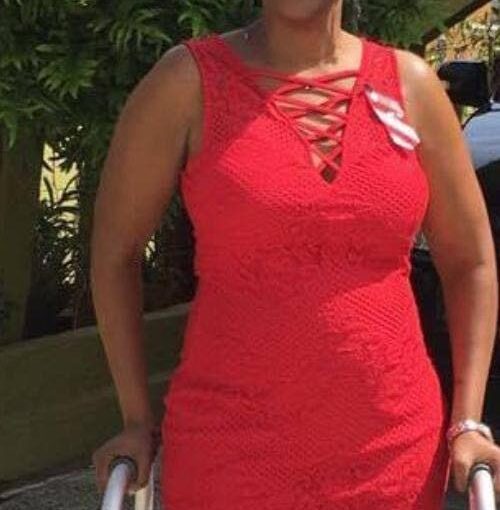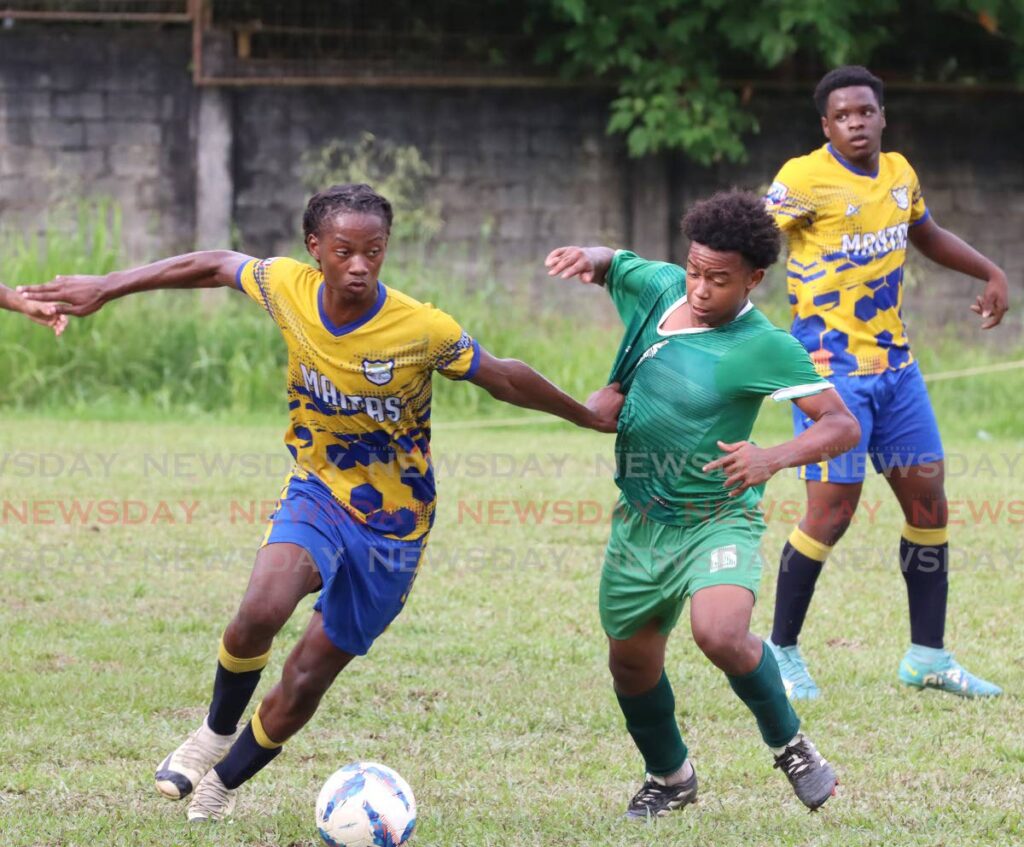Coping with hurtful comments
Written by Newsday on September 29, 2024

STACEY SAMUEL-O’BRIEN
MULTIPLE SCLEROSIS has rendered me physically disabled. Over the past 19 years, as the disease progressed, I regressed from walking normally, to walking with a limp, to using a cane, to currently using a walker and a mobility scooter. While I can stand and walk in short bursts, I have to use my scooter to get around safely and comfortably.
Along with the numerous challenges of any disability, disabled people must also deal with overcoming public scrutiny and managing social interactions. I have never felt self-conscious about using my mobility aides in public and most of my interactions with other people in TT have been positive and straightforward; no one has ever said anything “outta timing” to me. Unfortunately, there are other disabilities that make navigating social interactions more complicated.
I’d like to talk about Liselle. Liselle is a visually impaired woman living in Trinidad. Twenty years ago, at age 35, Liselle woke up and all she could see out of her left eye was a circle of red. To her family, the eye looked completely normal, but all she could see was the red circle – she was literally seeing red! Naturally, it alarmed her, but she had to continue with her day. Later, however, a friend noticed that she was squinting quite a bit and they suggested she go to an optician right away.
At the optician’s office, she was referred to an ophthalmologist who diagnosed her with a destroyed retina. As years passed, Liselle had to endure numerous surgeries and, eventually, she completely lost sight in her left eye.
A year later, in 2005, she looked at her husband and his head suddenly appeared distorted and looked the size of an exercise ball. She knew right away that she had to go back to her ophthalmologist. This time, the retina in her right eye had detached and she needed immediate surgery – the first of many. Currently, her vision fluctuates between complete blackness and bright white.
Looking at Liselle, you would never guess that she is visually impaired though her right eye is slightly smaller.
Over the years, after each surgery, Liselle’s vision would improve for a while but then regress as time went on. During one of those times with some vision, she was squinting at something in a store trying to read. Someone walked past her and joked, “like yuh need to test yuh eyes and get some glasses” as they continued on their way. Ordinarily, this statement may not have mattered, but given everything that Liselle had been through, she was understandably rattled.
Another time, an acquaintance of hers (who knew of her situation) approached Liselle and said, “Girl, who dress you? If was me, I woulda kill myself!” I recognise that, at times, it’s the Trinbagonian thing to be brutal with our jokes and picong, but there’s really nothing funny about this statement, especially given Liselle’s situation as a visually impaired person.
The first incident involved a stranger who meant no harm, and had no idea that the statement would hit so close to home. In the second, the person knew Liselle so the comments were particularly rude and inexcusable. Nonetheless, both situations had a negative impact on Liselle because they referred to her eyesight, or lack thereof. They are very good examples of how social interactions can inadvertently invoke negative feelings of self-worth.
Overcoming adversity and learning to deal with an unexpected, curve ball from life is not an easy feat. Coping involves acceptance and having the courage to figure out how to live and possibly continue to do things that you enjoy, albeit in a different way. Support, even from unexpected sources, plays a huge part in figuring this out.
I was in a Carnival fete this year and even though it was my best fete, at one point, I began to fall into a funk because I looked around and it hit me that I could not fete quite like everybody else around me. At that very moment, a stranger appeared. He didn’t say a word but took my hand and we “danced” till “party done.” He had no idea how impactful that small gesture was to me.
Liselle has incredible faith and cherishes a support system that includes her family, friends, doctors and others who help her work through the many, new challenges she faces by being visually impaired. Doctors steer her through her journey and she can depend on unwavering support from her friends and family every step of the way.
Coping also involves overcoming other peoples’ brash comments, whether they are welcome, warranted, or necessary. And, unfortunately, healing is not a linear process; a comment may be funny one day, but hurt the next.
Coping is a continuously evolving, learning process with ups and downs along the way.
Multiple sclerosis (MS) is a debilitating autoimmune disease that affects the central nervous system.
In MS, the body’s white blood cells attack the protective covering of nerve fibres. When nerve fibres become exposed, electrical messages between different parts of the body and the brain are no longer transmitted effectively. MS can lead to sensory, cognitive, digestive and muscular issues.
It is a degenerative disease for which there is no cure.
The post Coping with hurtful comments appeared first on Trinidad and Tobago Newsday.




